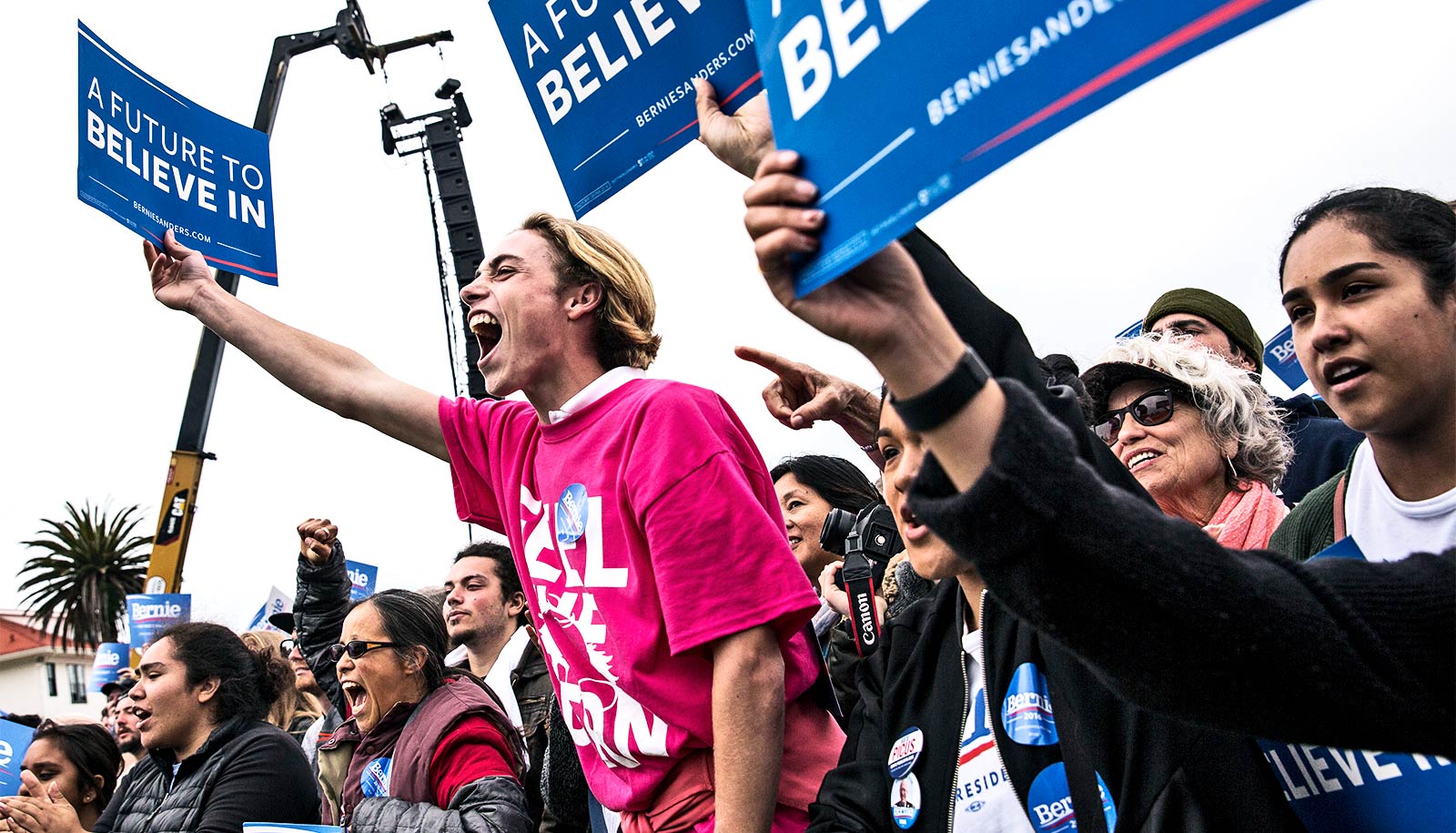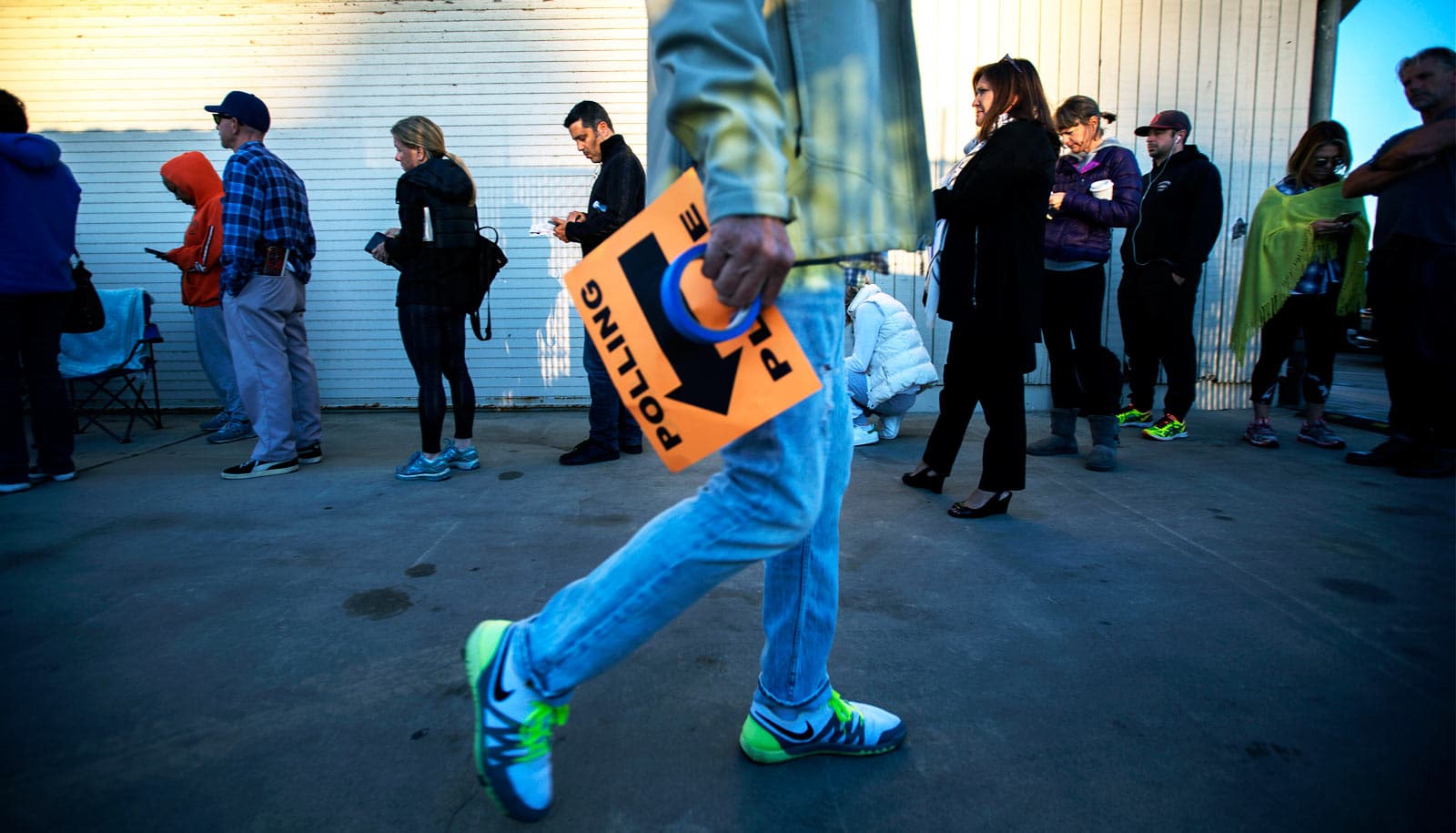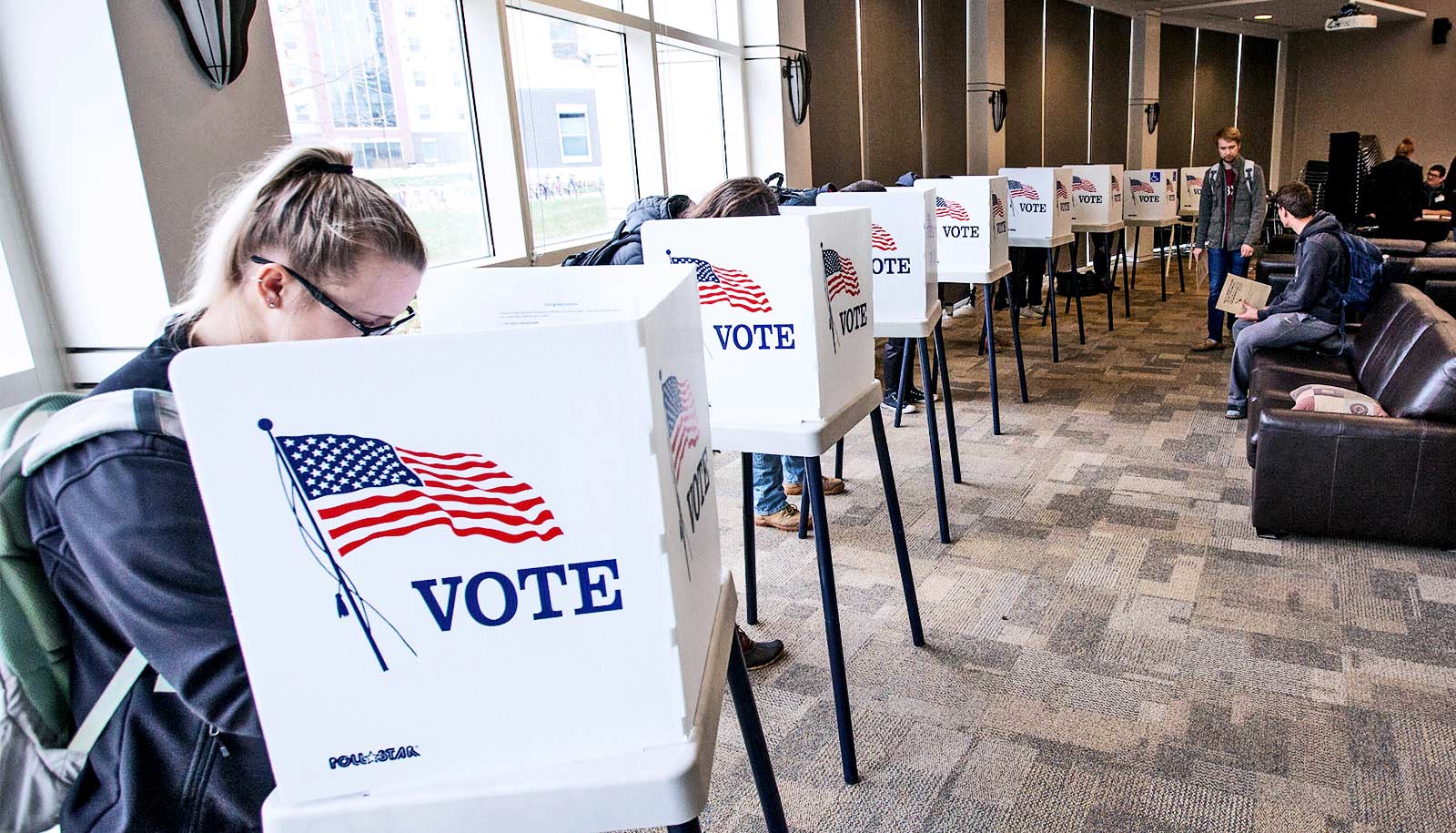Voters chose their favorite candidates, not those with “momentum,” in the 2016 presidential primaries, research suggests.
One of the many stories to emerge from that raucous primary season centered on the concept of momentum: who had it, who didn’t, and what it all meant for primary outcomes.
If voters shifted their votes as a result of earlier primaries, could the party’s nomination have gone to a different candidate if different states had voted sooner? The new study suggests that the answer is no.
“During the 2016 election, the word ‘momentum’ was often used to predict or explain the outcome of a primary election, but it was never really clear whether voters were actually casting votes based on a candidate’s previous performance,” says Josh Clinton, professor of political science at Vanderbilt University.
“Were New Hampshire voters really more likely to support the candidate who won the Iowa caucuses simply because that candidate won?”
“Despite the term being used so often, we wanted to see if voters were changing their votes to support winners. Were New Hampshire voters really more likely to support the candidate who won the Iowa caucuses simply because that candidate won? Or were voters making their decisions based on the candidate they liked best?”
To answer this question, the researchers mined a huge trove of survey data—more than 325,000 interviews, or nearly 1,700 per day—collected nearly every day starting in December of 2015 and continuing throughout the 2016 primary election using NBC News/SurveyMonkey tracking polls that they helped write. The unprecedented size and scope of the data allowed researchers to track candidates’ support throughout the primary season for a demographically balanced sample of the US electorate.
To measure whether voters were more likely to change their mind to support winning candidates, the researchers compared the support for each candidate before and after each state primary to the day-to-day variation in support that occurred in the absence of primary election events.
“If winning a primary created momentum among voters, we would expect to see a sizable fraction of voters’ changing their mind and supporting the winning candidate after each primary,” Clinton explains. “But in almost every case, the shifts we see are largely indistinguishable from the ordinary ebb and flow we observe in public opinion.”
The researchers also looked at whether other primary events such as debates were able to change voters’ minds.
“We again found no evidence that voters were reacting to debate performances during the time period we examined,” Clinton says. “By the time of the Iowa caucuses, most voters seemed to have a good sense of who they supported. Voters were not supporting candidates because they were winning.”
“Voters make decisions based on who is running, not who is winning.”
When candidates did win several primaries in a row, Clinton says, the reason was usually because those states had similar electorates, not because the voters in later primaries were drawn to winning candidates. And when a candidate did start to win a greater percentage of the vote, he says, it was because other candidates had dropped out and the field was smaller.
Clinton cautions that his findings don’t mean that staggered state primaries don’t make a difference. Early performance can and does impact fundraising and media attention—factors that certainly allow a candidate the ability to keep campaigning.
“But, at least in 2016, we don’t see a whole lot of evidence that voters were changing their support based on who won,” he says.
“The fact that California is voting on Super Tuesday in 2020 may indeed have large consequences for the ability of candidates to remain viable, but our research suggests that its outcome is unlikely to be impacted by who won South Carolina two weeks before,” he says. “Voters make decisions based on who is running, not who is winning.”
The study appears in the Journal of Politics.
Source: Vanderbilt University



